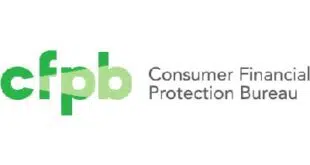A senior Federal Reserve official said greater speed, efficiency, and responsiveness to consumer preferences are the central bank’s top payments priorities as it plans for the next decade. But apart from promoting open communication and collaboration among industry players, Sandra Pianalto, president and chief executive of the Federal Reserve Bank of Cleveland, didn’t say exactly how the Fed would accomplish its goals in some areas, particularly speeding up automated clearing house transactions.
Pianalto, who is chairperson of the Federal Reserve Banks’ Financial Services Policy Committee, delivered the keynote speech Monday at the Federal Reserve Bank of Chicago’s Payments Symposium. Her wide-ranging address touched on the vast increase in electronic payment transactions and the decline of consumer check writing in recent years. With the rise in check imaging thanks to the Check 21 law, the Fed has closed all but one of its 45 check-processing sites.
“Check volumes peaked in 1995 at almost 50 billion items per year,” Pianalto said. “Today, check volume is less than 25 billion items per year, and checks now represent just 10% of U.S. payment transactions.”
But issues remain in displacing cash and checks, one of which is the speed of ACH transactions. Settlement typically occurs one business day after transaction origination, but many in the payments industry want same-day clearing. The Fed offers a same-day service, but its usage is limited in part because it’s voluntary. Member banks of ACH governing body NACHA in August rejected a NACHA proposal for same-day settlement. Same-day proponents say that some banks, particularly large ones, oppose same-day clearing because a faster ACH network would threaten their much more profitable wire-transfer franchises.
Pianalto pointed out that the United Kingdom four years ago adopted what is known as the Faster Payments Service, which she says shows it is possible to speed up clearing times from the next day to within an hour or two on the same day. Faster Payments Service and Britain’s ACH network operate independently, with Faster Payments now carrying the equivalent of 13% of the country’s ACH volume, according to Pianalto.
“So I believe that the Faster Payments Service, or something more far-reaching, is within our grasp,” she said. “NACHA has been working toward a same-day solution for several years now. Although its work has spurred divergent opinions, it’s also spurred healthy debate, there is progress.”
That last comment elicited some quiet chuckles from the audience of about 150 that included many bankers. But Pianalto carefully avoided blaming anyone for same-day ACH’s lack of success so far.
“Here’s the point: if we are going to move all or part of ACH to same-day clearing and settlement, we need to understand industry views on the benefits and costs,” she said. “We need to dig into the technology and operations details. And we need to consider safety and settlement issues. At the Federal Reserve, we are working toward solutions, and we are interested in the industry’s perspective and insight.”
Not long after her speech, a speaker from consulting firm McKinsey & Co., David Stewart, presented data that might explain why banks so fiercely defend their wire-transfer businesses. McKinsey came up with pre-tax profit estimates for a number of bank services normalized at 100 for signature debit before the Durbin Amendment interchange price controls took effect a year ago.
Wire transfers were by far the most profitable service, scoring 1,351. Credit cards came in a distant second at 102. The ACH scored a mere 4, far below prepaid cards (29), PIN-debit cards (25) and even checks (12). “You can understand why … [NACHA members] voted it down,” he said.
Cash scored a negative 1, meaning handling cash essentially is unprofitable for paying banks, according to Stewart. The rankings also show why banks still like debit cards despite the Durbin price controls affecting issuers with more than $10 billion in assets. “At the end of the day, even impaired debit … is still more profitable to a bank than cash,” said Stewart.





